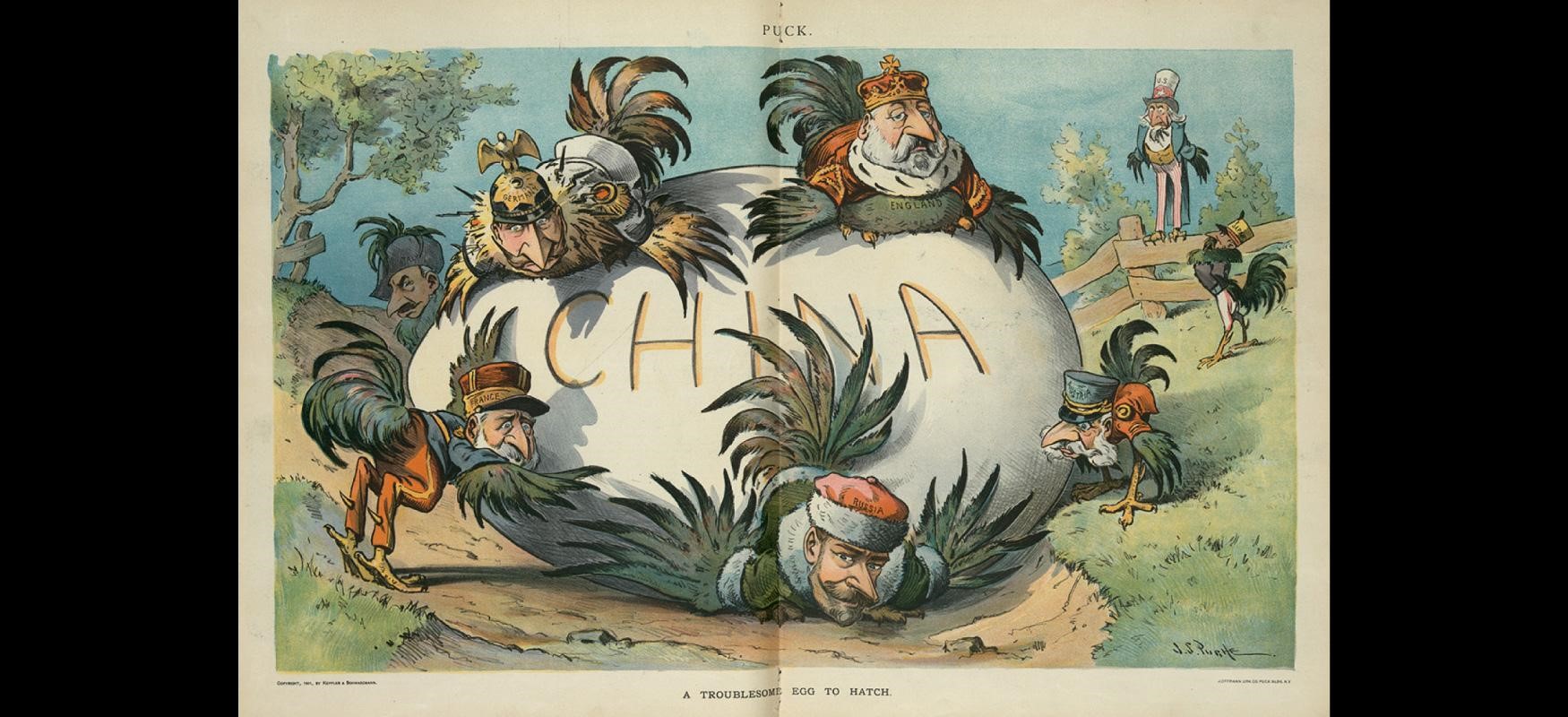Module 5: Expansion in the Industrial Age
Section outline
-

The Industrial Revolution, beginning in Great Britain in the 18th century, followed by the United States, France, Belgium, and Germany, will dramatically change the West. How these nations harnessed the power of water and steam to revolutionize the production of goods like textiles, iron, steel, and machinery components, is a fascinating story. Additionally, there were important advancements in transportation and communication, particularly the locomotive, steamboat, and telegraph, that will radically change lifestyles and work dynamics. By the end of the 19th century, industrialization moved beyond the United States and Western and Central Europe.
(credit: modification of work “A troublesome egg to hatch” by LOC Prints and Photographs Division/Library of Congress)
Upon completion of this module, you will be able to:1. Describe the technological innovations of the Second Industrial Revolution.2. Describe the spread of industrialization beyond western and central Europe and the United States.3. Explain the obstacles to industrialization facing countries in Asia, North Africa, and Latin America in the nineteenth century.To achieve these objectives:
- Read the Module 5 Introduction.
- Read Chapter 5 in Western Civilization II.
- Complete the module discussion forum and quiz.
Module Pressbooks Resources and Activities
You will find the following resources and activities in this module at the Pressbooks website. Click on the links below to access or complete each item.
-
Opened: Friday, June 28, 2024, 12:00 AMDue: Friday, July 5, 2024, 12:00 AM
- Read the Module 5 Introduction.
Background Colour
Font Face
Font Kerning
Font Size
Image Visibility
Letter Spacing
Line Height
Link Highlight
Text Colour
